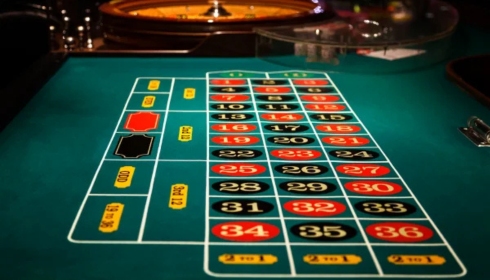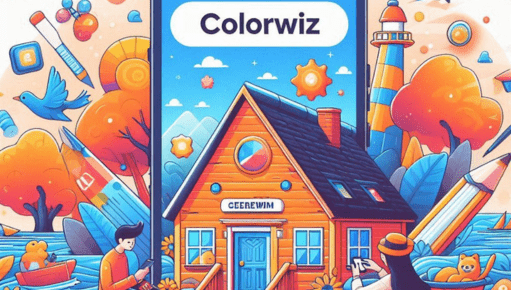There’s something timeless about the idea of luck — that quiet spark of uncertainty that makes life unpredictable and, in some strange way, exciting. For some, it’s as simple as tossing a coin. For others, it takes the form of numbers, charts, and rituals — a dance between fate and strategy. And that’s where Satta Matka comes in.
You’ve probably heard the name somewhere, maybe in old Bollywood movies or late-night conversations among friends. It’s one of those things that feels both familiar and mysterious — something that carries the nostalgia of a bygone India but still manages to survive, quietly, in the modern world.
The Birth of a Phenomenon
Matka didn’t start out as the game of chance it’s known as today. Back in the 1960s, it was something quite innocent — betting on the opening and closing rates of cotton sent from the New York Cotton Exchange to the Bombay Cotton Exchange. Numbers were random, outcomes uncertain, and people found excitement in the unpredictability.
When that system was banned, India did what it always does best: reinvent itself. Locals began drawing numbers out of an earthen pot — or matka — and that’s how the term stuck. Simple, handmade, and thrillingly unpredictable.
Soon enough, what started as a casual pastime for traders and workers evolved into a cultural sensation. The game spread across Mumbai’s neighborhoods, connecting strangers through a shared pulse of anticipation. It wasn’t fancy or flashy — just raw, real, and human.
The Social Fabric of Matka
It’s easy to dismiss Matka as just gambling, but that’s only scratching the surface. The truth is, it became a kind of social glue. Imagine this: factory workers gathering after shifts, chai in hand, discussing charts and lucky numbers; small shop owners closing early to hear results on the radio; local gossip wrapped around who won big the previous night.
In a way, it wasn’t just about money. It was about belonging, about being part of something larger than yourself — a shared hope that maybe, just maybe, fortune would knock on your door next.
Even decades later, that spirit hasn’t disappeared. It lives on, reshaped and redefined for a new generation that still finds beauty in uncertainty.
The Kings of the Game
Every story needs its legends, and Matka had plenty. In its golden age — the 1970s and 80s — names like Ratan Khatri and Kalyanji Bhagat weren’t just famous; they were mythic. They weren’t politicians or film stars, but they commanded that kind of respect.
Ratan Khatri, often called the “Matka King,” ran his operations with precision and charm. People trusted his fairness, even in a game built on chance. There was an odd sort of ethics to it — as if fate itself had rules.
Under their reign, Matka wasn’t merely a game. It was a cultural wave, with Mumbai as its heartbeat. And while the authorities tried to shut it down, the allure never really vanished. It simply went underground, waiting for a new form to emerge.
From Pots to Pixels
Fast forward to today. The world has changed, and so has Matka. What once happened in dimly lit rooms and street corners now unfolds online, with digital platforms breathing new life into an old tradition.
You can play it on websites, check results in real time, and even join communities dedicated to predictions and analysis. The physical matka might be gone, but the excitement remains.
And that’s where SattaMatka finds its modern identity — not just as a nostalgic throwback but as a symbol of adaptation. It’s proof that even traditions built on luck and whispers can survive the digital age, quietly evolving while keeping their soul intact.
For players, the experience has changed — no more handwritten charts or waiting for the radio. But that heartbeat of suspense? That’s still there. Some things never change.
Why People Still Play
Let’s be honest: life can feel predictable sometimes. Work, bills, routines — they all start to blur together. Maybe that’s why games like Matka endure. It’s not just about the money or the thrill; it’s about breaking monotony.
When someone picks a number, it’s not just a random choice — it’s a small act of rebellion against certainty. It’s a reminder that luck, however fleeting, still exists.
People also find something oddly meditative about it. The rituals, the calculations, the gut instincts — it’s a form of connection to something intangible. A belief, however irrational, that destiny can turn in their favor.
And if we’re being real, who doesn’t want to feel that once in a while?
The Indian Spirit of Luck
India has always had a love affair with fate. From astrology to lucky charms, from rituals before exams to prayers before big events, it’s part of who we are.
That’s why Indian Satta isn’t just a game of numbers; it’s a reflection of our collective mindset. It’s about hope — a deep-rooted belief that life, however uncertain, still offers a chance for miracles.
In many ways, Matka fits perfectly into that narrative. It carries the same rhythm as our festivals, the same emotion as our prayers. It’s not about winning or losing; it’s about participating in life’s great unpredictability.
Even in modern India — the India of startups, stock markets, and AI — that ancient relationship with luck still lingers. Matka is just one expression of it.
The Double-Edged Sword
Of course, not every story has a golden side. Matka, for all its charm, has also caused pain. Many players have lost more than they could afford — money, peace, even families. That’s the darker reality.
It’s important to understand where excitement ends and obsession begins. Because when luck becomes dependence, it stops being luck. The line between fun and addiction is thin, and crossing it can cost more than any jackpot could ever repay.
That said, many still argue that banning it never truly worked. Regulation, awareness, and balance — those might be better ways to keep the tradition alive responsibly.
The Quiet Legacy
Walk through old Mumbai neighborhoods, and you’ll still find traces of Matka’s history. Faded wall charts, whispered tales of “the big win,” maybe even an old-timer reminiscing about the days when life felt simpler — when hope came wrapped in a number written on a slip of paper.
It’s poetic, really, how a game so fragile, so uncertain, still refuses to fade. It’s evolved, traveled, adapted — but it’s still here, reminding us that chance is an inseparable part of being human.
You can’t code it, control it, or predict it. And maybe that’s why it continues to captivate us.
Final Thoughts
At its heart, Matka isn’t just about betting or gambling. It’s about the age-old human need to believe in something beyond logic — something mysterious, unpredictable, and maybe a little magical.
Sure, the world’s changed. We have stock markets, crypto, and endless apps promising quick returns. But none of them capture the raw simplicity of Matka — that heartbeat of anticipation, that dance between fate and choice.





